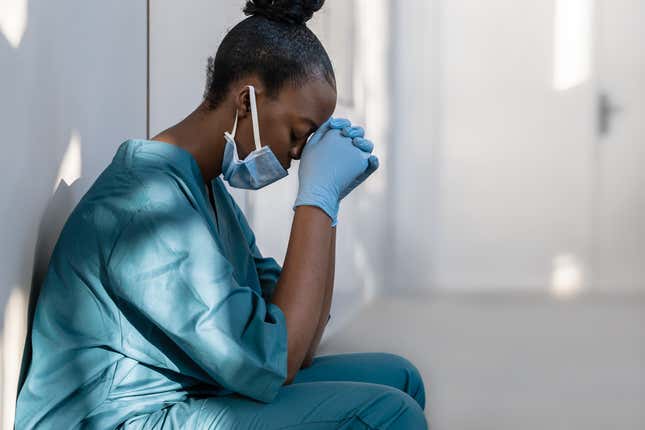
Just when the United States started to close the gap between life expectancy rates amongst races, Covid-19 wrecked the chance.
In an interview with CBS News in June 2022, Dr. Greg Roth at the University of Washington School of Medicine said that the gap between Black and white life expectancy would be smaller at this point if Covid-19 had never happened. Today, white people are expected to live an average of 5 years longer than Black people.
Scarily, Black life expectancy dropped from 74.8 to 70.8 from 2019 to 2021 according to the CDC National Vital Statistics Reports. Black people had one of the biggest drops in one year for life expectancy from 71.5 years in 2020 to 70.8 in 2021.
Life expectancy rates have historically been lower for Black people compared to other races mostly because of unequal services for minorities. Although the gap is present, it hasn’t always been large because according to the 2021 CDC report, “the gap had been narrowing during the past three decades, from 7.1 years in 1993 to 4.0 in 2019.”
Dr. Ashish Jha, The White House Coronavirus Response Coordinator, addressed concerns about the Black life expectancy dropping at The Root Institute 2022. He believes that the main contributor to this decline and the expectancy gap between races is systemic racism.
Black people are more likely to contract Covid-19 than other races mostly because of working essential jobs and living in households where multiple age groups reside, meaning germs are being brought in from all types of places.
The covid-19 response was not equal amongst all races, leaving many Black people without the correct care for the disease. The healthcare system was already biased against Black folks before the pandemic, so Covid only made it worse. Testing sites were also not put in places easily accessible by Black communities at the beginning of the pandemic, or the existing sites were overwhelmed and became understaffed and unable to service people at a convenient time.
Vaccine hesitancy was one reason why people thought Black people were dying of Covid more than other races, but that has been proven untrue, as 80% of Black people have gotten vaccinated. The issue is bigger. It’s the system that isn’t doing enough to guarantee health and safety for Black Americans.
Dr. Jha believes that it’s partly in the hands of medical experts to speak up for the Black community to make sure that the lack of health support is not what continues to shorten the lives of Black people across the country.

